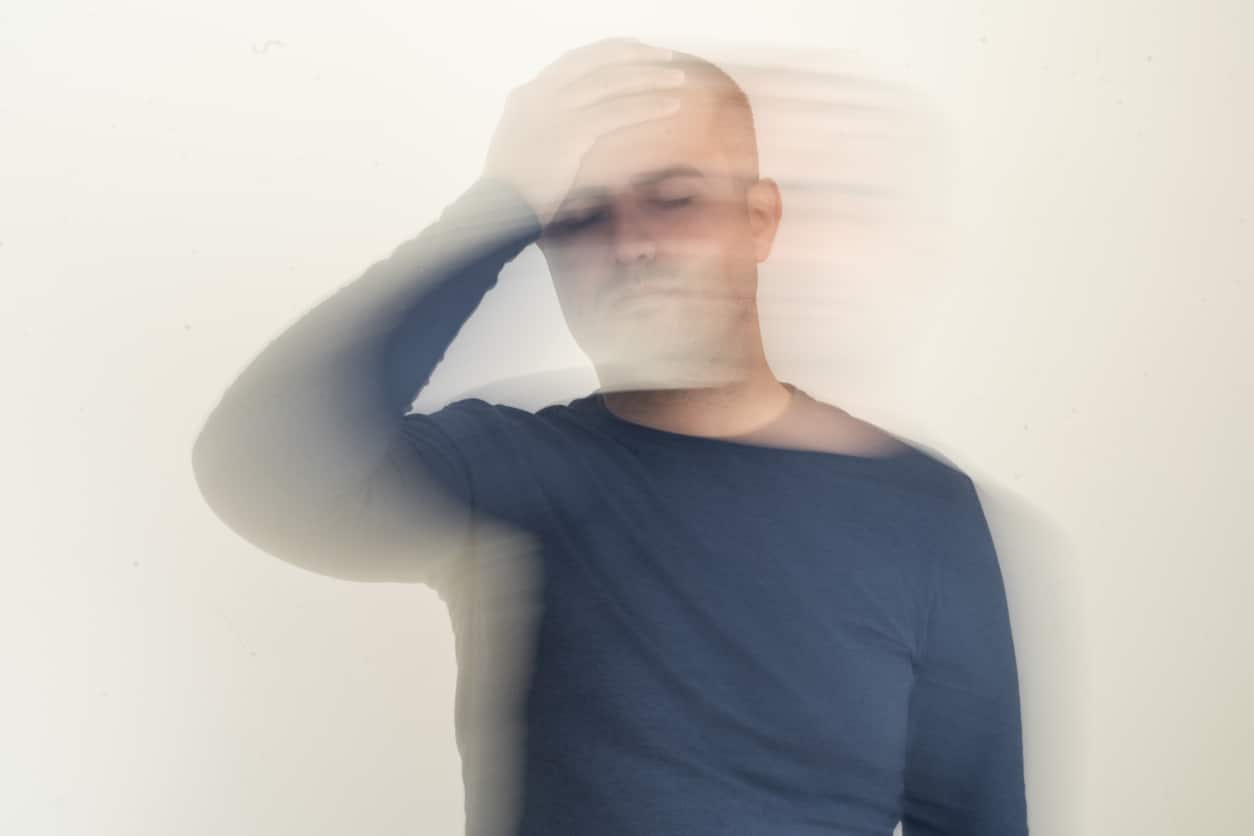You’ve probably heard the terms dizziness and vertigo used interchangeably. While vertigo causes dizziness, not all dizziness is vertigo. Let’s look at the difference between the two conditions and how you can manage them.
What To Know About Vertigo

Vertigo causes dizziness that makes you feel like you or the room is spinning. There are two main categories:
- Peripheral. Peripheral vertigo stems from issues with the inner ear or vestibular nerve—the parts of the ear that inform balance. There are a few types of peripheral vertigo, including benign paroxysmal positional vertigo (BPPV), labyrinthitis, vestibular neuritis and Ménière’s disease.
- Central. Central vertigo stems from conditions affecting the brain, like a stroke, traumatic brain injury or infection. You may notice more severe symptoms like difficulty walking and a complete lack of stability with central vertigo.
Each type of vertigo will require specialized treatments. Your ENT or balance specialist will perform one or more exams to identify the type of vertigo you’re dealing with and the best treatment to address it. A few common tests include:
- Imaging
- Vestibular tests
- Head impulse battery
- Romberg’s test
- Fukuda-Unterberger test
What To Know About Dizziness
Dizziness is a broad term that describes feeling faint, woozy, weak or wobbly. For example, if you skip lunch and then go for a run around Pioneer Park, you may feel a little faint and refer to the sensation as dizziness.
Because it’s a relatively generic category, there are a lot of things that can make you dizzy, including but not limited to vertigo, motion sickness (the way you feel in the car on a windy road), medicine side effects and, rarely, issues with the circulatory system.
Dizziness is a common reason adults seek medical care. Paying attention to when dizziness arises and what you think might trigger it is the first step in finding relief.
How Do I Know if I Have Dizziness or Vertigo?
The easiest way to tell the difference between dizziness and vertigo is to pay attention to the specific sensation. A general wobbliness is likely just a dizzy spell. A feeling that the room is spinning, especially if that feeling happens a lot, is likely vertigo.
Schedule a Balance Evaluation
If you’ve been having trouble with balance, contact ENT & Allergy Specialists – Ear Nose and Throat Physicians and Surgeons today to schedule an evaluation with one of our specialists.